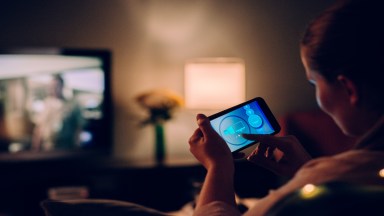African-Americans—at 44 million strong and approximately 14.2% of the country’s population—make up a powerful group with a growing impact on American culture and business.
This demographic is largely young—53% are under the age of 35—giving them an oversized influence on the latest trends, especially with music and pop culture. In addition, higher academic achievement has translated into increases in household income—44% of all African-American households now earn $50,000 or more and 23% earn above $75,000. And these higher household incomes, coupled with overall population growth, are driving the substantial purchasing power of the African-American consumer, which is expected to reach $1.3 trillion in a few short years.
So how can businesses connect with these valuable shoppers? Know your consumers—culturally.
A recent report shows that Blacks want companies to recognize their unique culture. The overwhelming majority of those surveyed, 87%, feel ethnic recognition is important compared to 59% of the general population. Seventy-three percent of African-American adults 18-54 years old stated that cultural/ethnic heritage is a critical part of their cultural identity. Among African-Americans aged 18-54 with a household income greater than $50,000, 77% indicated their heritage was an important part of who they are compared with 58% of the general population.
Not surprising given these consumers’ strong desire for cultural recognition, ethnic identity is closely linked to Blacks’ affinity for products and purchasing behavior. Compared to the general population, African-Americans are 30% more likely to believe diversity in advertising is important, and 38% are more likely to make a purchase when the advertisements have African-American people included.
And ethnic identity drives more than affinity for just products. Forty-four percent of African-Americans also said they are more likely to purchase or support products that are owned or supported by African-Americans or other diverse groups, and 43% are more likely to patronize a business if it’s minority-owned. Twenty percent of Blacks attest to being more likely to purchase a product supported or endorsed by an African-American celebrity or musician.
The importance of cultural identity is also more significant to higher income households in the areas of business ownership and celebrity endorsements: 55% of Blacks with household incomes of $50,000 or more said they would purchase or support a product if it was sold or supported by a person of color or minority-owned business, while only 20% of non-African-Americans in the same income bracket felt this way. Furthermore, nearly half of all higher-income African-Americans say they actively seek out diverse businesses.
This is good news for the growing number of Black entrepreneurs. A marked rise in the number of African-American owned businesses has driven the recent increases in Black household income. Black business ownership increased 61% between 2002-2007, which is substantially higher than the 18% general market growth rate. Additionally, receipts of African-American owned businesses grew 55% compared with 28% of general market receipts during that time.
While African-Americans place a high emphasis on diversity in advertising, diverse ad success varies by industry and product categories. The greatest difference between African-Americans’ and general populations’ feelings of how important diversity is in advertising appears in the health care and auto industries, with 82% and 70% of Blacks, respectively, reporting that diversity is important—compared with 63% and 51% of the general population who felt the same.
Making sure advertising that connects with African-Americans actually reaches these consumers requires some multitasking on the part of advertisers. Using multiple platforms is a necessary part of an effective marketing strategy—62% of Blacks are more likely to feel advertising content accessed via mobile phones and devices is useful. Comparatively, 53% agreed that TV ads provided useful information about new products and services, while advertising with newspapers (47%), magazines (46%), radio (39%), and internet (38%) showed similar sentiment as the general population.



